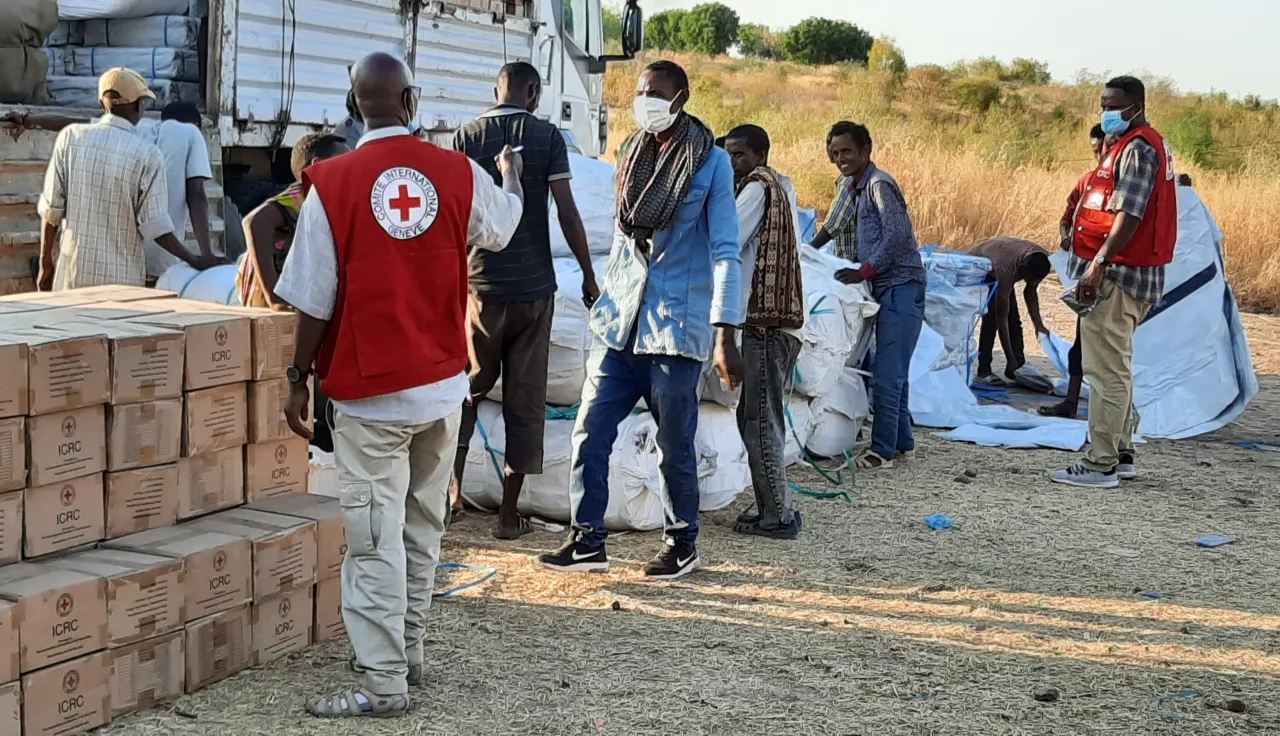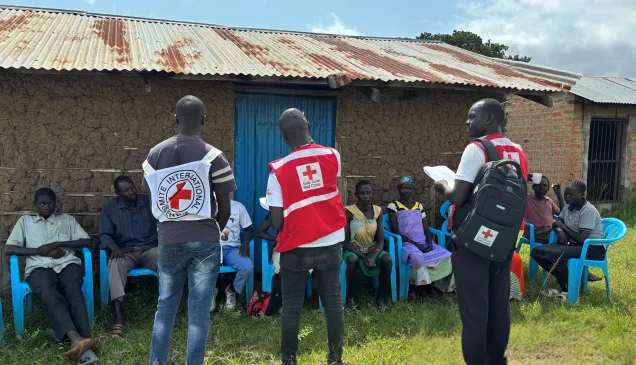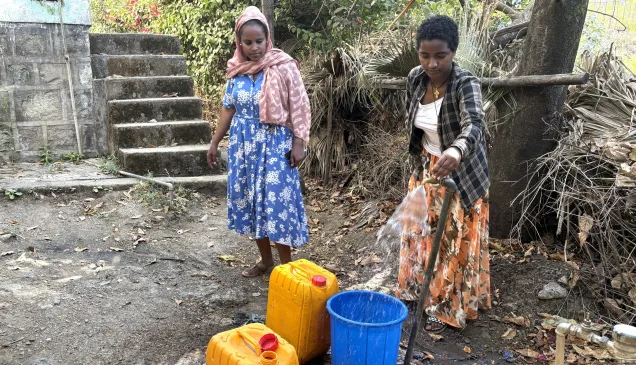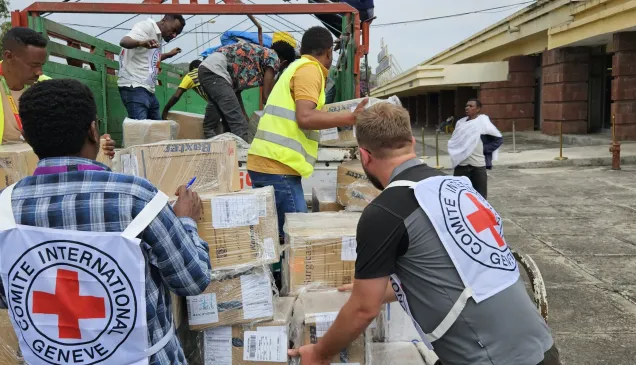Ethiopia: Fear and lack of farming supplies risk severe long-term food shortages

As fighting in pockets of Ethiopia's Tigray region continues and food supplies dwindle, local farmers not only lack seeds and fertilizer ahead of the planting season but fear runs high.
Access our latest media footage.
Endrias Kidane states: "Our children are suffering. Whenever we hear the sound of a corrugated iron we all run thinking it's gunshots. We run everywhere to the hills and mountains."
Haregu Teshale adds: "The land cannot grow crops without fertilizer and the fertilizers we had were looted."
Without the necessary agricultural supplies, the dramatic food shortages already seen in the region will continue to grow and thousands of people may not have enough to eat during the planting season.
To help farmers who can safely access their agricultural land grow cereal crops for the next year, the International Committee of the Red Cross (ICRC), in partnership with the Ethiopian Red Cross Society, is distributing seeds and two varieties of fertilizer to 16,000 families in central zone of Tigray Region.
"The farming communities we recently visited are struggling. They can only afford two meals a day instead of three, and the variety of what they eat has become very poor," said Amila Suriyarathne, who heads the economic security program for the ICRC in Ethiopia. "The farming season in Tigray starts soon, and things can deteriorate very quickly if farmers can't plant crops."
Agriculture is the primary source of livelihood in rural Tigray. However, climate and soil in this mountainous area pose significant challenges to farmers, who heavily depend on fertilizer to boost food production. Since armed violence flared up last November, agricultural seeds and subsidized fertilizers on credit from cooperative unions, vital for growing crops in the region, have been unavailable.
At the same time, an estimated one million displaced people have been relying on the support of the host communities who shared their already limited resources and whose food stores are running dangerously low. Many farming communities suffered from looting that further undermined their ability to produce food.
As fighting in #Ethiopia’s #Tigray region continues and food supplies dwindle, local farmers not only lack seeds and fertilizer ahead of the planting season but fear runs high.
New footage for media in our newsroom: https://t.co/KfOLeo15gY pic.twitter.com/AKGzurjWTN— ICRC Africa (@ICRC_Africa) May 31, 2021
A recent analysis by the ICRC of the food security situation in the region found that families who now can afford to eat two meals a day may soon be forced to eat only one per day. The violence in the region, aside from affecting the agricultural cycle, is also making it difficult for families to find additional work to help them afford more food.
For further information about how ICRC is supporting people in Tigray see the latest operational update.
For further information, please contact:
Anne Kilimo, ICRC Addis Ababa, akilimo@icrc.org M. +251944101700
Alyona Synenko, ICRC Nairobi, asynenko@icrc.org M. +254716897265
Wolde Gabriel Saugeron, ICRC Geneva, wsaugeron@icrc.org M. +41792519302
or visit our website: www.icrc.org
Follow the ICRC on facebook.com/icrc and twitter.com/icrc



